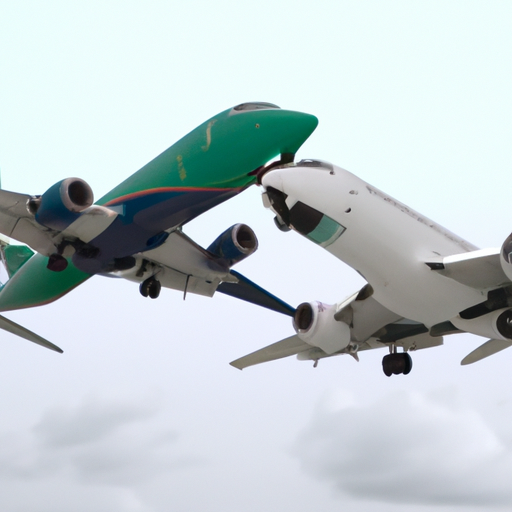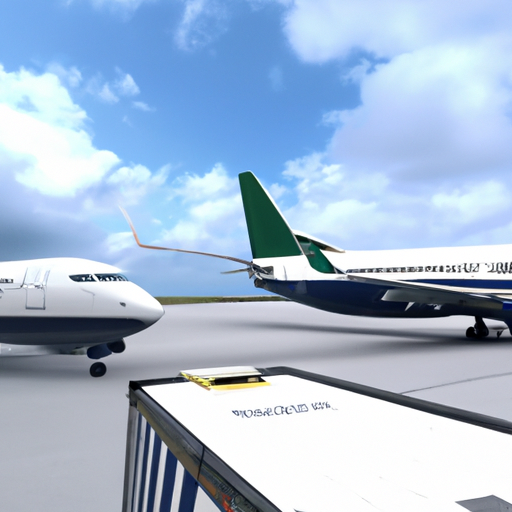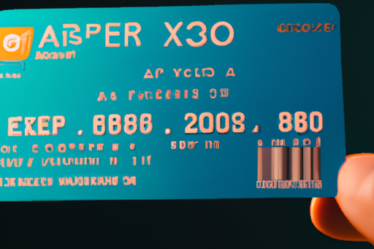
The Legal Implications of Pilots Leaving Southern Airways Express
Legal Battle Ensues as Southern Airways Express Takes Legal Action Against Departing Pilots
In the fast-paced world of aviation, the departure of pilots from one airline to another is not uncommon. However, when Southern Airways Express recently found itself facing the loss of several experienced pilots, it decided to take legal action. This move has sparked a legal battle that raises important questions about the legal implications of pilots leaving an airline.
Southern Airways Express, a regional airline operating in the southern United States, has been providing reliable and efficient air travel for years. Like any other airline, it relies heavily on its pilots to ensure the safe and smooth operation of its flights. So, when a group of pilots decided to leave the company and join a competitor, Southern Airways Express felt compelled to protect its interests.
The legal action taken by Southern Airways Express centers around the issue of non-compete agreements. These agreements are common in many industries, including aviation, and are designed to prevent employees from leaving a company and immediately joining a direct competitor. In this case, Southern Airways Express claims that the departing pilots violated their non-compete agreements by joining a rival airline.
Non-compete agreements are often seen as a way for companies to protect their trade secrets, customer relationships, and other valuable assets. However, their enforceability can vary depending on the jurisdiction and the specific circumstances of each case. In some states, non-compete agreements are strictly enforced, while in others, they may be deemed unenforceable if they are found to be overly restrictive or against public policy.
The legal battle between Southern Airways Express and its departing pilots raises important questions about the balance between protecting a company’s interests and allowing employees to pursue their careers freely. On one hand, Southern Airways Express argues that the non-compete agreements are necessary to safeguard its business and prevent unfair competition. On the other hand, the departing pilots argue that these agreements are overly restrictive and prevent them from pursuing better opportunities elsewhere.
It is worth noting that the outcome of this legal battle could have far-reaching implications for the aviation industry as a whole. If Southern Airways Express is successful in enforcing its non-compete agreements, it could set a precedent that other airlines may follow. This could potentially limit the mobility of pilots and make it more difficult for them to switch employers, which could have a negative impact on their career prospects.
On the other hand, if the departing pilots are successful in challenging the enforceability of the non-compete agreements, it could lead to a more open and competitive job market for pilots. This could benefit pilots by giving them more freedom to pursue better opportunities and negotiate better terms of employment.
In conclusion, the legal battle between Southern Airways Express and its departing pilots highlights the complex legal implications of pilots leaving an airline. The outcome of this case could have significant consequences for both the airline industry and the career prospects of pilots. As the legal battle unfolds, it will be interesting to see how the courts balance the interests of the company and the departing pilots, and what impact this will have on the future of the aviation industry.
Analyzing the Contractual Obligations of Pilots in the Aviation Industry

Legal Battle Ensues as Southern Airways Express Takes Legal Action Against Departing Pilots
In the fast-paced world of aviation, contractual obligations play a crucial role in maintaining the smooth operation of airlines. Recently, Southern Airways Express found itself embroiled in a legal battle as it took legal action against a group of departing pilots. This incident has brought to light the importance of analyzing the contractual obligations of pilots in the aviation industry.
When pilots sign contracts with airlines, they enter into a legally binding agreement that outlines their responsibilities and obligations. These contracts are designed to protect the interests of both the airline and the pilots, ensuring a fair and mutually beneficial working relationship. However, disputes can arise when pilots decide to leave the airline before their contract expires.
Southern Airways Express claims that the departing pilots breached their contractual obligations by leaving the airline prematurely. According to the airline, these pilots were bound by a non-compete clause that prohibited them from working for a competitor for a certain period of time after leaving the company. By joining a rival airline, the pilots allegedly violated this clause, leading Southern Airways Express to take legal action.
Analyzing the contractual obligations of pilots in the aviation industry is essential to understanding the legal implications of such disputes. Non-compete clauses are common in pilot contracts, as airlines invest significant time and resources in training their pilots. These clauses aim to protect the airline’s investment by preventing pilots from taking their newly acquired skills and knowledge to a competitor immediately after leaving.
However, the enforceability of non-compete clauses can vary depending on the jurisdiction. Some countries have strict laws that limit the scope and duration of such clauses, while others may have more lenient regulations. In this case, the legal battle between Southern Airways Express and the departing pilots will likely revolve around the validity and enforceability of the non-compete clause in question.
It is important to note that contractual obligations are not limited to non-compete clauses. Pilots are also bound by other provisions, such as confidentiality agreements and notice periods. These provisions ensure that pilots do not disclose sensitive information about the airline’s operations to competitors and give the airline sufficient time to find suitable replacements.
In the aviation industry, where safety is paramount, contractual obligations also extend to pilots’ adherence to safety protocols and regulations. Airlines have a duty to ensure that their pilots are well-trained and comply with all safety requirements. Pilots, in turn, are obligated to follow these protocols to maintain the highest standards of safety in their operations.
As the legal battle between Southern Airways Express and the departing pilots unfolds, it serves as a reminder of the importance of carefully analyzing contractual obligations in the aviation industry. Airlines and pilots must be aware of their rights and responsibilities to avoid potential disputes and legal complications.
In conclusion, contractual obligations play a vital role in the aviation industry, ensuring a fair and mutually beneficial working relationship between airlines and pilots. The legal battle between Southern Airways Express and the departing pilots highlights the significance of analyzing these obligations. From non-compete clauses to safety protocols, understanding and upholding contractual obligations is essential for maintaining a harmonious and efficient aviation industry.
Exploring the Potential Consequences of Southern Airways Express’ Legal Action
Legal Battle Ensues as Southern Airways Express Takes Legal Action Against Departing Pilots
Exploring the Potential Consequences of Southern Airways Express’ Legal Action
In a surprising turn of events, Southern Airways Express, a prominent regional airline, has recently taken legal action against a group of departing pilots. This unexpected move has sent shockwaves through the aviation industry, leaving many wondering about the potential consequences of such a bold move.
First and foremost, it is important to understand the context surrounding this legal battle. Southern Airways Express claims that the departing pilots violated their employment contracts by leaving the company before their agreed-upon contract term had expired. The airline argues that this breach of contract has caused significant financial harm and disruption to their operations.
One potential consequence of this legal action is the impact it may have on the reputation of Southern Airways Express. While the airline may believe that taking legal action is necessary to protect their interests, some industry experts argue that it could be seen as heavy-handed and potentially damaging to the company’s image. Customers and potential employees may question the airline’s treatment of its pilots, potentially leading to a loss of trust and a decline in business.
Furthermore, this legal battle could have wider implications for the aviation industry as a whole. If Southern Airways Express is successful in its legal action, it may set a precedent for other airlines to take similar measures against departing employees. This could create a climate of fear and uncertainty among pilots, potentially leading to a decrease in job mobility and a stifling of career opportunities.
On the other hand, if the departing pilots are successful in defending themselves against Southern Airways Express’ claims, it could send a message to other airlines that such legal action may not be worth the potential backlash. This could empower pilots to seek better employment opportunities without fear of facing legal consequences, ultimately leading to a more competitive job market and potentially improved working conditions for pilots.
Another consequence to consider is the potential impact on the relationship between Southern Airways Express and its remaining pilots. This legal battle may create a sense of unease and mistrust among the current workforce, as they witness their colleagues being taken to court by their employer. This could lead to a decline in morale and a decrease in productivity, ultimately affecting the airline’s overall performance.
Additionally, the legal battle may also have financial implications for Southern Airways Express. Legal proceedings can be costly, and if the case drags on for an extended period, it could drain the airline’s resources. This could potentially impact the company’s ability to invest in new aircraft, expand routes, or offer competitive salaries to its employees.
In conclusion, the legal battle between Southern Airways Express and its departing pilots has the potential to have far-reaching consequences. From the airline’s reputation and the industry’s perception of such legal action to the impact on the remaining pilots and the financial implications, the outcome of this legal battle will undoubtedly shape the future of the aviation industry. As the case unfolds, it will be interesting to see how it is resolved and what lessons can be learned from this contentious situation.


